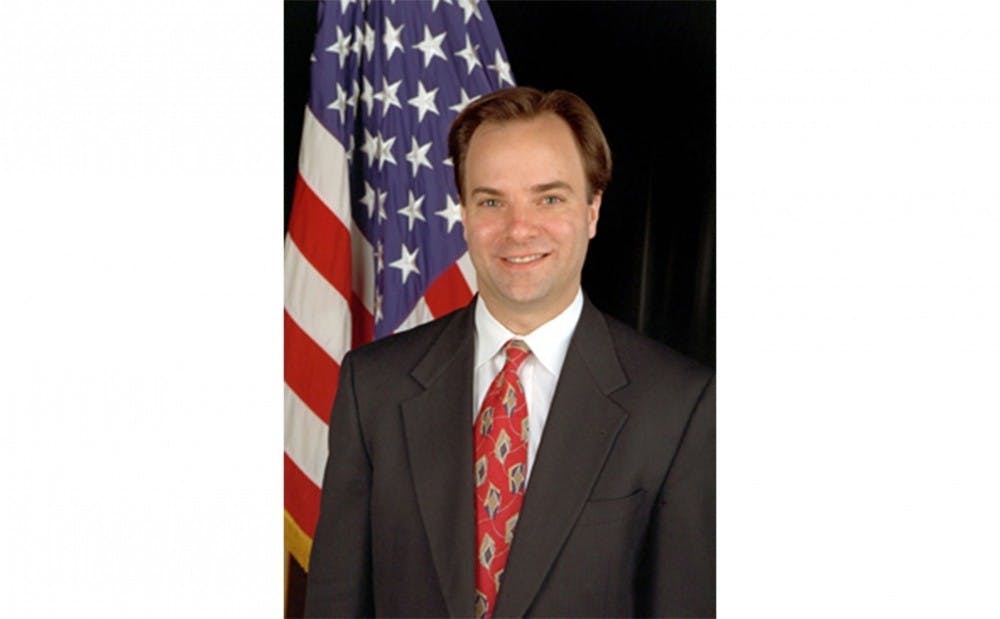In late April, the Food and Drug Administration posted a grant opportunity worth $4.2 million with one key caveat—only the the Duke-Margolis Center for Health Policy could apply for it, according to the Washington Post.
The five-year funding opportunity—a no-bid grant—was intended “to promote the increased availability of safe and effective drugs to the public,” the Post reported.
Last week, the FDA reversed course and decided to make the grant open and competitive. The decision came after health policy experts raised concerns about favoritism in the awarding of the grant and bias in its execution, specifically citing ties to the center’s director, Mark McClellan, according to the Post’s report.
Ellen de Graffenreid, director of communications for the Duke-Margolis Center, wrote in an email to The Chronicle that the Duke-Margolis Center has "no role in the FDA’s decision-making process so we can’t speak to the concerns raised by the Washington Post."
McClellan served as the commissioner of the Food and Drug Administration from 2002 to 2004. Both McClellan and A. Eugene Washington, chancellor for health affairs and president and CEO of Duke University Health System, are members of the Board of Directors of Johnson & Johnson, a large drug manufacturer. Gregory Daniel, deputy director of the center, was listed as the principal investigator for the grant, according to the Post.
Until last week, the FDA had stood by its decision for the grant to be no-bid, stating in an email to the Post that its policy “allows for exceptions to competitive bidding under certain circumstances, such as when the agency finds a particular institution is uniquely qualified to carry out a cooperative agreement.”
In an email Tuesday morning, Deborah Kotz, a press officer for the FDA, explained why the funding opportunity was originally posted as a no-bid grant.
"In this particular case, because of previous history in helping advance regulatory science, track record of consistent high-quality work, and proven expertise and familiarity with the FDA’s policies and processes, as well as efficiencies, the FDA was able to continue work with this organization," she wrote. "Note that FDA has substantial involvement in the direction of work performed under the cooperative agreement."
What led to the change in course? The FDA said in a statement to the Post that the shift came after the agency became "aware of other organizations who believe that they can submit a competitive proposal to conduct the needed research and related activities."
The FDA posted a new call for grant applications online May 17, with a due date of July 18—and it isn't limited to the Duke-Margolis Center.
Some of the specific objectives listed in the grant include working with the FDA to identify and prioritize research issues related to the 21st Century Cures Act and Prescription Drug User Fee Act, conducting research to plan sessions for experts to provide critical input on regulatory science issues, convening stakeholders and developing reports. The FDA says it is looking to "establish a cooperative agreement with a qualified awardee with experience in the conduct of the needed research, workshops and other meetings, and related work."
The post for the competitive grant says that its primary objective is to “provide supporting research, identify key issues, and convene appropriate subject matter experts to help inform major initiatives for process improvement and regulatory science” that are related to the agency’s commitments under the 2018 Prescription Drug User Fee Act and 21st Century Cures Act legislation.
In a March 2017 interview with The Chronicle, McClellan discussed the value of the legislation the grant is under. At the time, President Donald Trump had just nominated Scott Gottlieb—who was a senior adviser to McClellan when the latter was FDA commissioner—to head the FDA.
“This is a really important time for the agency,” McClellan said in the March interview. “Congress just passed strong bipartisan legislation that touches on many issues relating to 21st Century Cures and improving FDA processes and the scientific development process more generally. It was [one of the last bills] that President Obama signed, and it would benefit from a new commissioner implementing it.”
When asked what were the biggest challenges the agency was facing, McClellan said it was the “rising expectations and rising opportunities reflected in recent and upcoming legislation.” He pointed specifically to the bipartisanship reflected in the 21st Century Cures bill and in the “agreement coming together behind the upcoming FDA user fee legislation.”
“My work and the work of the faculty and staff affiliated with the Duke-Margolis Center speaks for itself, and complies with Duke’s well-established policies intended to address any issues related to conflict of interest," McClellan said in a statement to the Post.
Michael Schoenfeld, vice president for public affairs and government relations at Duke, wrote in an email that the Duke-Margolis Center responded to a request for proposals from the FDA to "conduct convening activities," such as organizing meetings and conducting literature reviews. He said that the University and the center have no role in the FDA's decision-making process, so inquiries related to the reasoning should be directed to the FDA.
"If the FDA decides to change the terms of the request for proposals (which is their prerogative), then the Duke-Margolis Center will decide whether to apply for the grant," Schoenfeld wrote.
Graffenreid wrote that the Duke-Margolis Center intends to still apply for the grant.
Editor's note: This article was updated Tuesday morning with Kotz's comments.
Get The Chronicle straight to your inbox
Signup for our weekly newsletter. Cancel at any time.
Bre is a senior political science major from South Carolina, and she is the current video editor, special projects editor and recruitment chair for The Chronicle. She is also an associate photography editor and an investigations editor. Previously, she was the editor-in-chief and local and national news department head.
Twitter: @brebradham
Email: breanna.bradham@duke.edu

